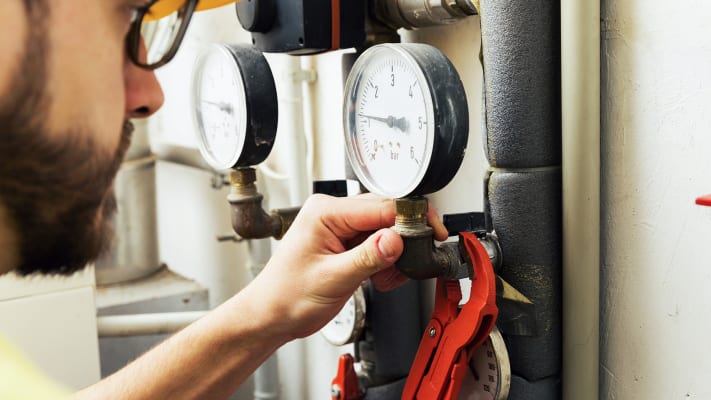Commercial boilers are used for many different hot water and steam applications in manufacturing facilities, education buildings, large apartment rental buildings, hotels, hospitals and other medical facilities, and more. In order for a boiler to run for a long time without putting handlers at risk, there needs to be a set of rules and guidelines that everyone follows and is comfortable with. Unfortunately, boilers do go down and people do get injured or even die from boiler mishaps. Here are several things to keep in mind when adopting these rules:
1. Make Sure Operators Are Aware of Boiler Regulators Per Your State
Every state will have rules and regulations regarding boiler use. For example, low pressure and high pressure boilers will need to be inspected – usually, it’s once a year – but this will depend on your state. A boiler inspector will check that the boiler has an ASME construction code, a legible nameplate, and stop valves. In addition to that, he or she will also take a look at the boiler room itself and make sure that the emergency switch is labeled, there is sufficient lighting, and there is no flammable storage in the boiler room. Please make these and other rules and regulations available to any workers who may come in contact with the boiler.
2. Hire a Professional Trainer
Given the importance of having highly trained boiler operators on staff, it might be a good idea to consider trainers who are ASME-certified and can provide the necessary training on specific equipment, maintenance processes, and more.
3. Train Everyone On Boiler Safety
If you haven’t checked out our infographic on boiler safety and things to watch out for, we highly encourage you to do so as soon as possible. Boiler-related explosions, although rare, do occur. Therefore, it’s important for operators to understand the basics to watch out for, including the water level, temperature, and pressure level. Any noticeable corrosion should be addressed as quickly as possible as well.
4. Keep Boiler Room Clean
As we mentioned above, you should not put any flammable storage in the boiler room as this is a potential hazard. Most states will have regulations in place regarding boiler room cleanliness. In addition to that, consider restricting access to only operators and technicians who have been trained in basic boiler safety so you don’t run the risk of injury or worse.
5. Schedule Downtime to Make Any Repairs and Upgrades
Every boiler will need to be repaired and/or upgraded over the course of its lifetime. When this does occur, you can utilize hot water rental boilers to maintain critical operations. When you do have a rental boiler installed, please keep in mind that you will need to do daily inspections on the temporary system as well to make sure everything is running normally. In regard to choosing a rental provider, choose one with experience with the type of system you have and the application it is used for.
If you are in need of boiler rental, Carrier Rental Systems has boilers of various configurations to meet our clients’ needs. Contact us today to learn more about our offerings.
